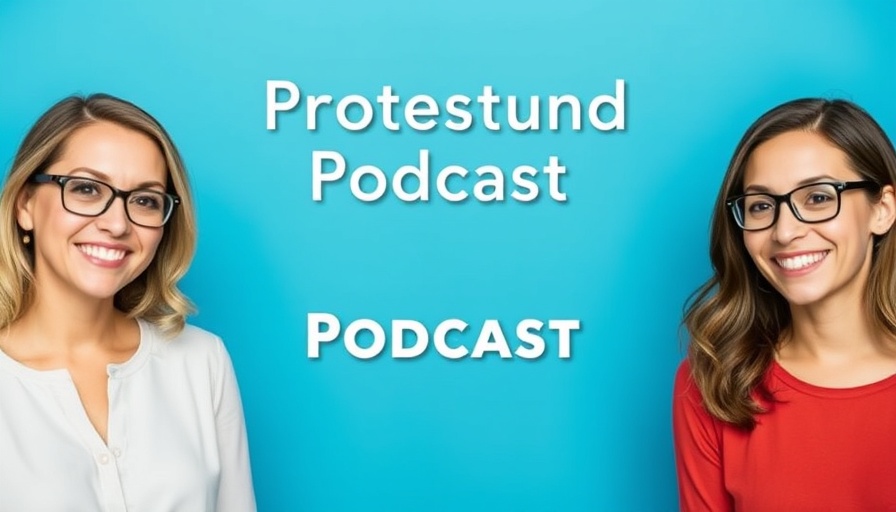
Understanding the Link: Vaccines, Autism, and Acceptance
In our rapidly evolving world, misinformation can spread just as quickly as evidence-based facts. The resurgence of anti-vaccine sentiments—highlighted by figures like RFK Jr. pushing debunked theories—has forced many to reexamine the conversations surrounding vaccines and their alleged link to autism. An essential part of this discussion centers not just on science, but on the dignity and humanity of individuals within the autistic community.
Breaking Down Vaccine Myths
The overwhelming consensus from researchers is clear: no credible scientific evidence supports the idea that vaccines cause autism. This belief, originating in the discredited Wakefield study from the late 90s, continues to inflict harm. It perpetuates stigma surrounding autism, placing those who identify as autistic in the unjust spotlight of being viewed as "damaged" or undesirable. The fear generated by anti-vaccine rhetoric can be as harmful as the refusal to accept scientifically-proven vaccinations.
Creating Community Connections
As advocates for both autism acceptance and vaccine advocacy, we must be cautious about how we frame our arguments. It’s crucial to voice that the panic surrounding vaccines not only negates scientific evidence but also further ostracizes individuals who are autistic, such as my son Leo. By promoting messages of acceptance and understanding, we can create a community that uplifts diverse abilities rather than marginalizing them.
Redefining Autism Within Vaccine Conversations
So often, we encounter discussions that tackle vaccine beliefs in isolation from the realities faced by autistic individuals. It is vital that we merge these two conversations, emphasizing that autism is a natural part of human diversity. Acknowledging the full spectrum of experiences associated with autism can shift the narrative from fear to acceptance, ultimately becoming an ally in our pro-vaccine advocacy.
Strategies for Effective Advocacy
Here are some strategies that can help incorporate understanding into your pro-vaccine messaging:
- Use Inclusive Language: Recognize autistic individuals as part of "us" rather than "them." This simple change in language fosters a sense of belonging and community.
- Emphasize Real Stories: Sharing personal narratives can humanize the statistics. Including anecdotes from the autistic community can resonate more deeply than abstract data.
- Frame Messages with Empathy: When addressing vaccine hesitancy, consider parental fears. Engaging new parents with messages of acceptance and support can lead to more open dialogues.
Encouraging Everyday Acceptance
Creating an environment where autistic individuals feel valued and understood begins at home, in classrooms, and within our communities. Emphasizing that autism is not only a part of being human but a celebrated aspect of diversity can reshape perceptions. By acknowledging and educating others about how anti-vaccine messages hurt autistic people, we contribute positively to societal views on autism.
Conclusion: Taking Action Together
The fight against misinformation is ongoing, and as advocates, we have a responsibility to ensure that our conversations uplift rather than malign the autistic community. Let's bridge the gap between vaccine advocacy and autism acceptance as we work toward a future where empathy reigns supreme. Remember, each dialogue counts towards changing perceptions and fostering a world that embraces differences. Indeed, an informed and compassionate society is a healthier one.
 Add Row
Add Row  Add
Add 




 Add Row
Add Row  Add
Add 

Write A Comment